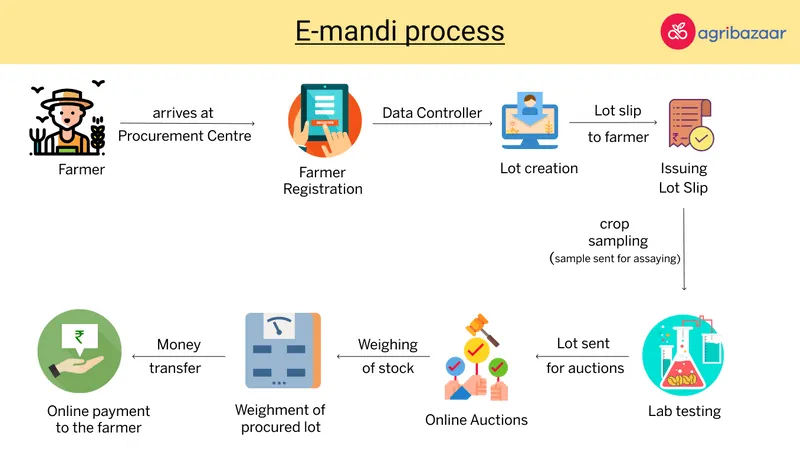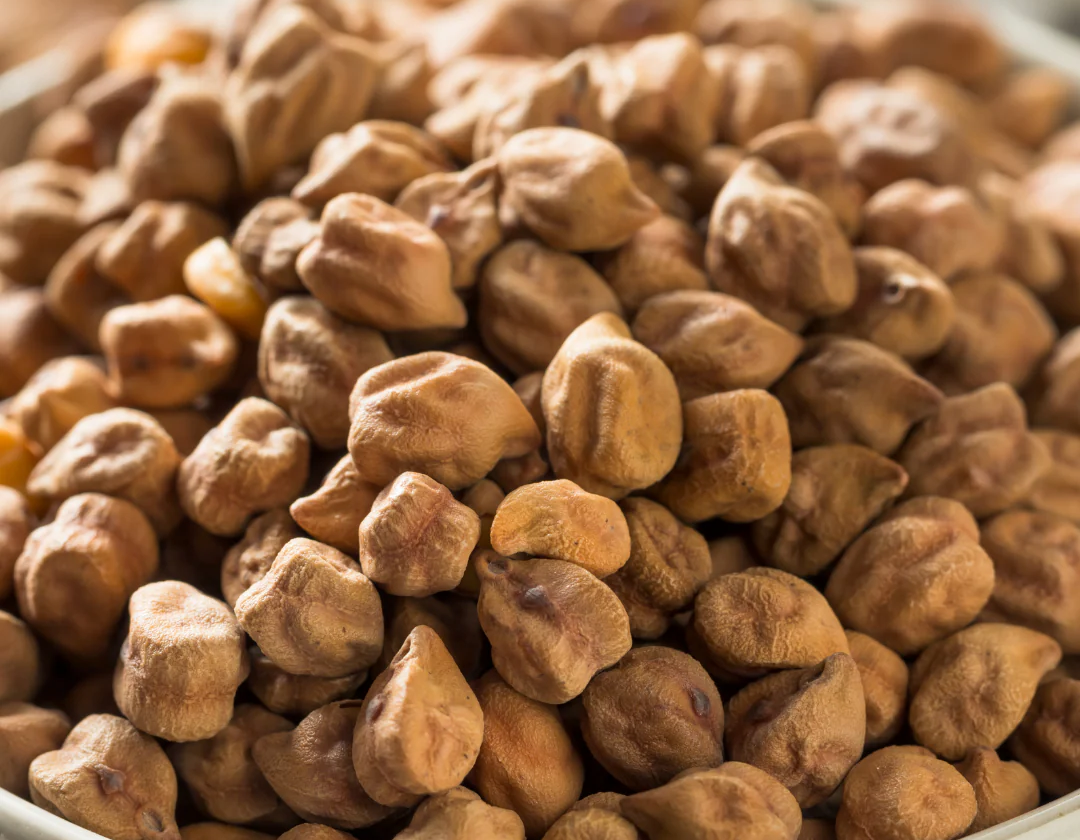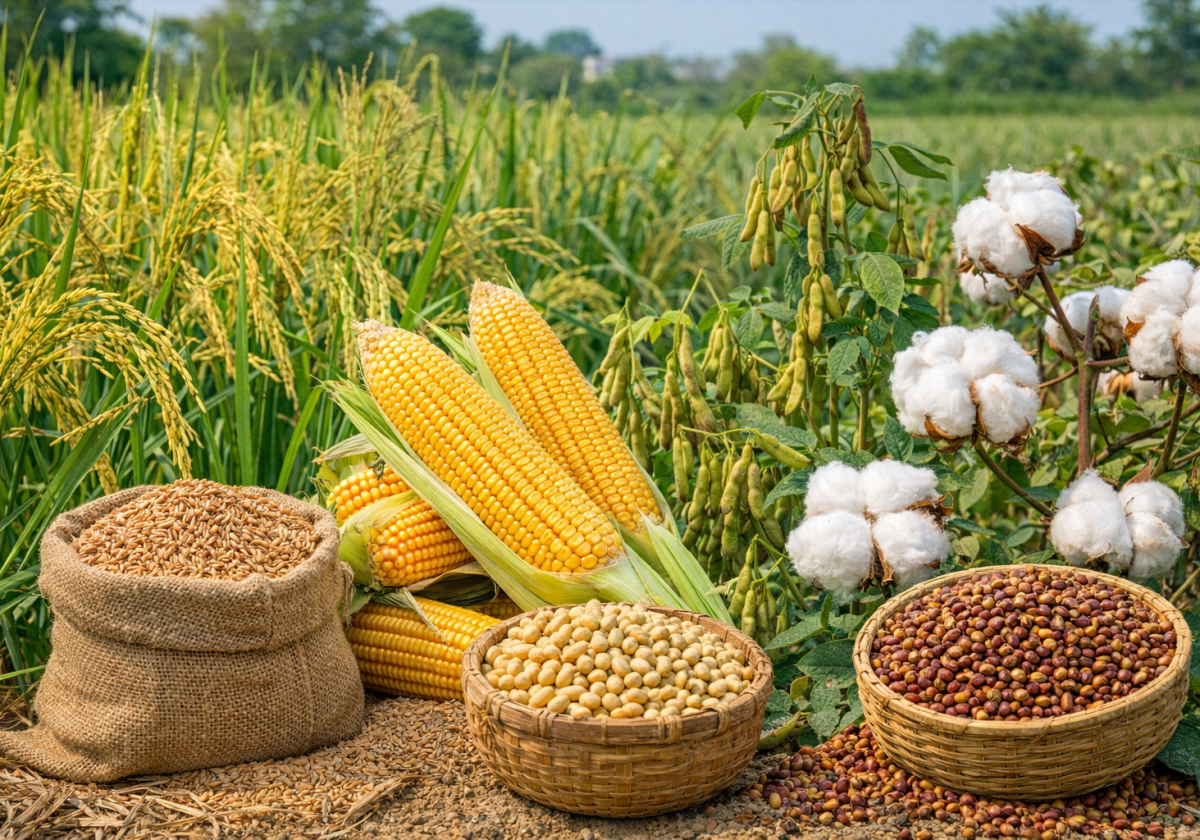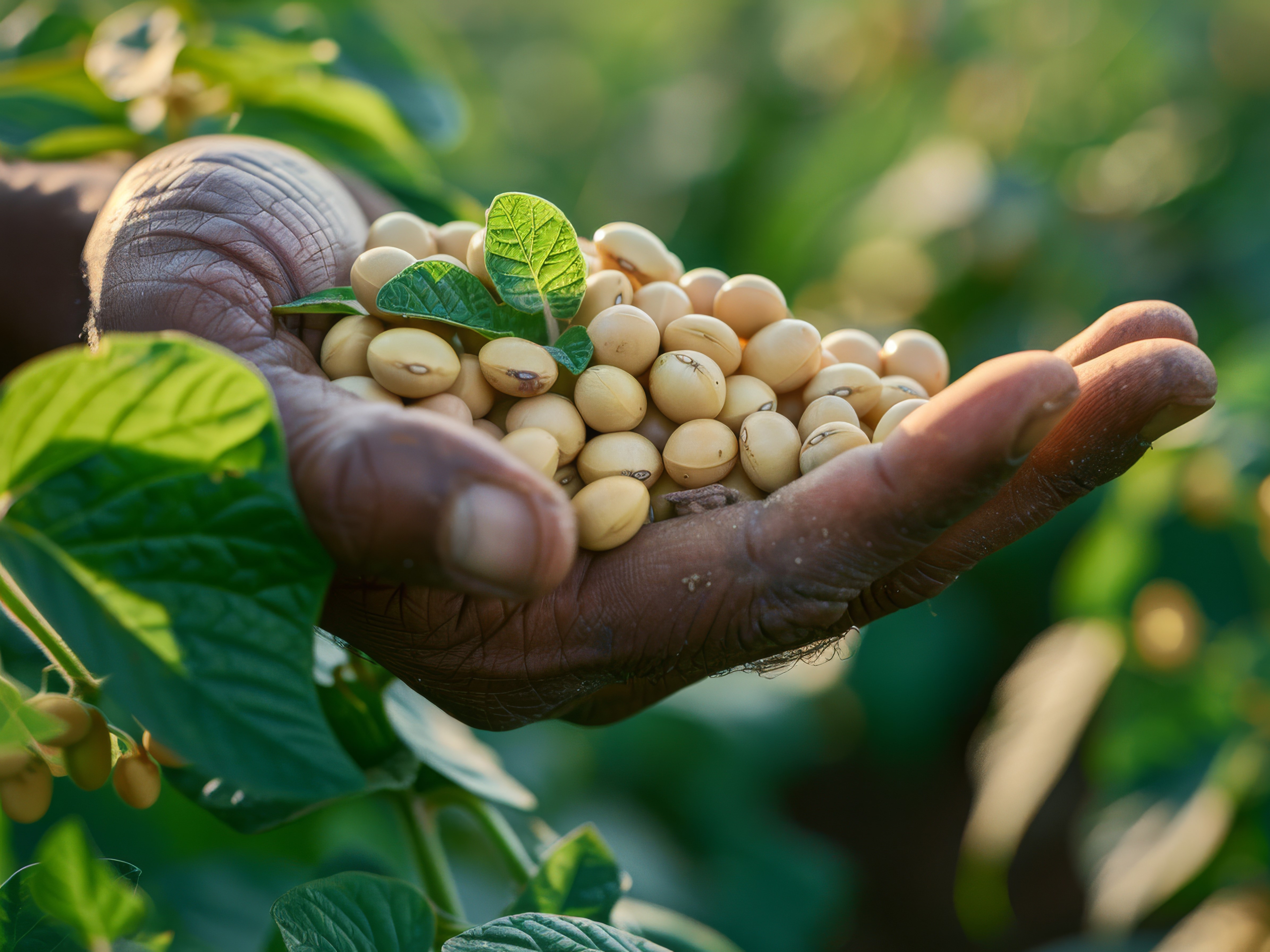Delhi-based agritech startup AgriBazaar brings farmers and food processing companies together on an e-mandi as coronavirus forces physical markets to stay shut.
Noida, India: 22nd April, 2020
The nationwide coronavirus lockdown has grounded several industries and halted the economic activity.
In the first phase of the lockdown, the most prominent impact was felt in the food supply chain due to widespread closure of APMC markets, disruption of transport and logistics, scarcity of contractual labour employed in agricultural farms, etc.
Also, the original lockdown guidelines issued by the Ministry of Home Affairs (MHA) made no exemptions for farm workers, agricultural and food procurement companies, thus leaving a third of India’s informal sector in the lurch.
But, PM Modi’s address on March 27 outlined the steps the government was planning to take to assist farmers ahead of the harvest season, which can have a bearing on the country’s food supply for the rest of the year.
However, despite the assurances, things on the ground are moving slowly in the absence of fleet and truck operators, restricted interstate and intrastate movement of agricultural machinery and other inputs like fertilisers, pesticides, and seeds, and various obstacles in the procurement of fresh produce.
1564671114666.png?fm=png&auto=format)
Enter AgriBazaar, a Delhi-based agritech marketplace that helps farmers and traders sell their produce quickly and efficiently through online mandis (or e-mandis).
The startup works with over 120 Farmer Producer Organisations (FPOs) in India and connects more than 200,000 farmers with state governments, procurement agencies, and food processing companies like Britannia, AgroPure, and others.
The AgriBazaar platform allows farmers to cut down their trips to physical mandis, and sell fresh produce online from the safe confines of their homes. “Electronic procurement ensures the farmer’s safety and health, follows social distancing measures, and also avoids overcrowding in the physical mandis,” Amith Agarwal, Co-Founder and CEO, AgriBazaar, tells YourStory.
“We’re committed to the government’s efforts to procure the last available grain from farmers. With the help of on-ground support from local authorities, we will ensure that the agricultural produce doesn’t go waste even in these times,” he says.
The e-mandi model
AgriBazaar has replicated the physical mandi online and married it with trading features. Once a farmer registers and lists his produce, buyers can place their orders. They are encouraged to top up their AgriPay wallets to “show willingness for purchase”.
After a transaction is processed, the startup facilitates the logistics of picking up the produce from the farmers’ doorstep and transporting it to the buyers’ warehouse. It deploys its own staff and vehicles, and also partners with local transporters and even large logistics operators for the delivery of produce.
The founder says, “Buyers get access to more than 12,000 suppliers (which includes farmers and village-level traders). Each supplier is verified by us based on KYC registrations. Buyers get access to supplier ratings and a wide selection of produce at the time of purchase. It helps them act positively.”

AgriBazaar also helps buyers — from MNCs to small-scale industries — with better price discovery and sellers with more targeted marketing of their produce. It charges a transaction fee from buyers, while farmers can sell their produce at no additional cost.
Further, the startup also offers tech-based traceability solutions to corporate buyers and international clients like Agrocorp.
Amith elaborates,
“Agritech is going beyond just transactions, and people want more data and analytics. Large buyers demand complete visibility on farms, owners, entire crop history, and other data. We have built an algorithm that allows farmers to geo-tag their entire farm on our platform. Based on that, we can upload satellite images of the farm and share the entire production map with the buyer.”
High volumes post COVID-19
AgriBazaar has recorded a significant jump in transactions and inquiries following the COVID-19 outbreak, with people avoiding crowded places like food mandis.
The founder shares, “Our volumes have been very high in the last few weeks after the closing of APMC markets. Transactions have grown 400 percent in one month. We are getting 500+ farmer requests per day. Farmers also get better deals digitally, and can save up on transportation costs if they sell through an e-mandi.”
The bestselling food grains on AgriBazaar include dry items like pulses, oil seeds, mustard, millets, wheat, soyabean, sugar, milk powder, and fruits like grapes, litchis, and mangoes. The focus is on items that have a shelf life of three to five months.
The produce is procured mainly from farmers in Rajasthan, Maharashtra, and Madhya Pradesh. AgriBazaar has also partnered with co-operative societies for sugar and pulses. The founder shares that things have started improving slowly in the last 10 to 12 days after the MHA’s renewed guidelines on “essential services”.
“Earlier there was a lot of fear,” Amith says. “Mandis have started to open in a limited manner now, labour is also coming back to the farms. But logistics is still an issue with truck drivers refusing to take long-distance trips as dhabas and repair/service centres on the highways remain shut,” he explains.
To combat the logistics problem, AgriBazaar is onboarding local transporters to ferry produce between short distances. The startup is also in talks with governments in Telangana, Andhra Pradesh, and other states to generate bulk orders.
Growth and future roadmap
AgriBazaar claims to have grown its GMV by 100 percent since 2017. It has facilitated nearly 2.25 million transactions, and traded Rs 8,304 crore of items.
The startup delivers produce to more than 160 locations in India, and has a “super reach” in 75 cities. (Super reach implies end-to-end market linkages for farmers, and factory and complete warehouse connectivity for institutional buyers.)
The “self-funded” startup has been running on its founder’s finances. Amith has invested close to Rs 24 crore in AgriBazaar, most of it coming from its parent company StarAgri (which is into agri-warehousing and agri commodity marketing).
But funding might be on the anvil. AgriBazaar is looking to raise $15 to $20 million this year “to expand operations into every city and village of India,” says Amith.

The startup operates in a sector valued at Rs 18.55 lakh crore in 2019, and estimated to grow by 10.2 percent until 2024. Nearly 60 percent of India’s population is dependent on agriculture for sustenance, according to IBEF.
In the agritech space, AgriBazaar competes with a host of startups looking to fix the farm-to-fork supply chain. These include Ninjacart, Harabaag, Technifybiz, Fresh VnF, Ecozen, CroFarm, Farmpal, and more.
Earlier in March, it also partnered with Bayer CropScience to support smallholder farmers in India under the latter’s ‘Better Life Farming’ initiative. Bayer will provide crop advisory and agricultural best practices to farmers registered on the AgriBazaar platform, and also help them earn better prices for their produce.
While the sustained impact of COVID-19 on India’s agricultural sector is not yet known, Amith believes that it will give a fillip on online marketplaces like AgriBazaar.
“Agritech will boom and increase consumption. Physical mandis aren’t sustainable in this case. If we don’t have a vaccine soon, social distancing will be a norm,” he says.
Well, if that happens, AgriBazaar would be one of the few companies celebrating!








 Connect With Us
Connect With Us